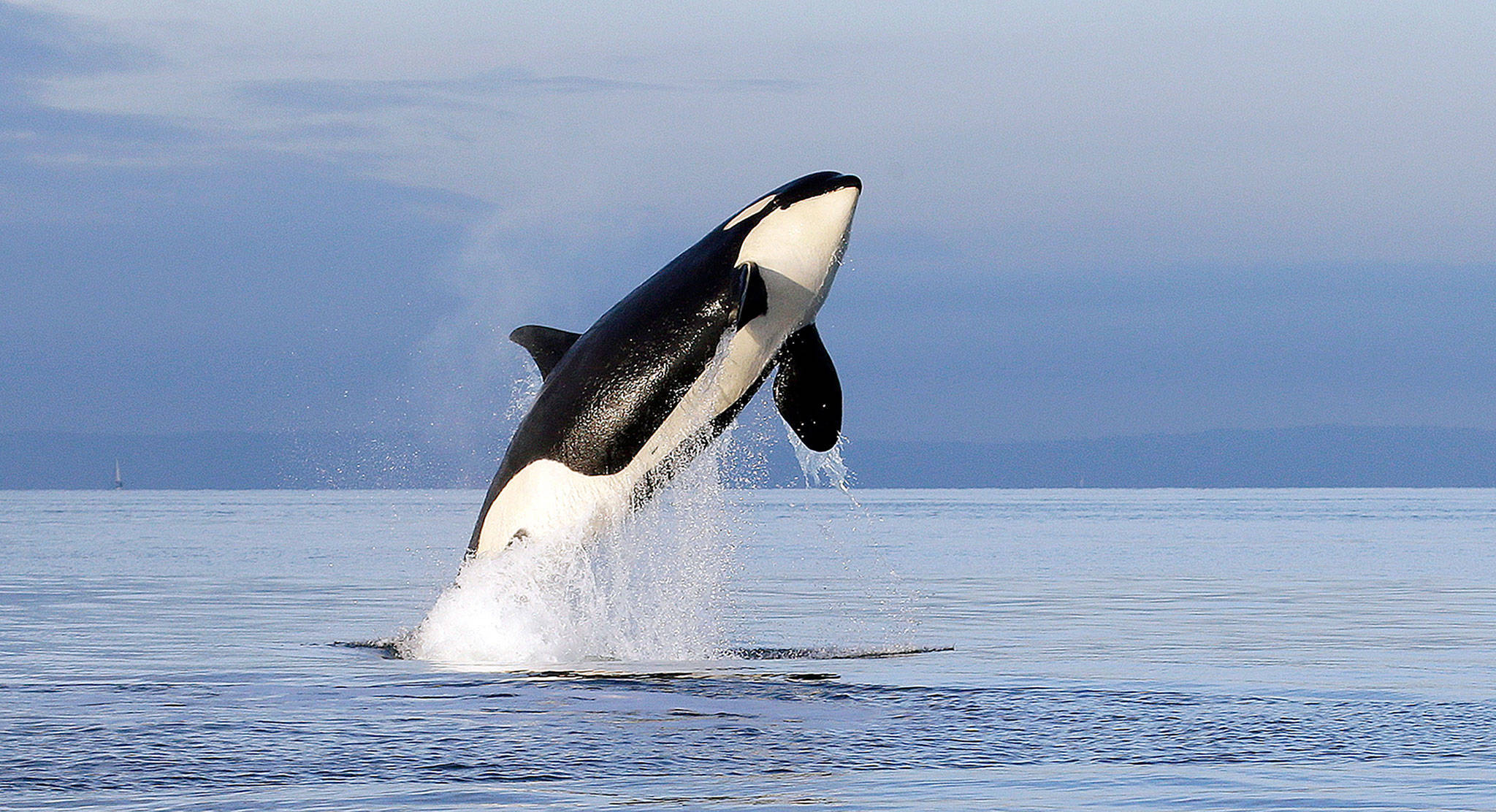The race to save the Southern resident orcas continues as representatives with Gov. Jay Inslee’s task force brainstormed last week.
The group of nearly 50 scientists, politicians, tribal members and business owners — which includes Center for Whale Research’s Ken Balcomb, SeaDoc Society’s Joe Gaydos and San Juan County Councilmember Jamie Stephens — gathered on March 18, in Lacey, Washington.
“It is exciting that all of the bills addressing task force recommendations have made it out of committee,” Gaydos told the Journal. “The reality is that we are all still waiting to see what gets passed into law and what is actually funded.”
Gaydos added that until the task force knows what is funded, it’s difficult to know what the focus of the group’s year two work will be. He said that they will know more by the scheduled June meeting, which will also be held in Lacey.
“Briefly, all of the bills focused on SRKWs (Southern resident killer whales) made it out of committee,” Gaydos said. “There also are climate change bills and other bills that will affect Southern resident killer whale recovery that are being debated now.”
The Center for Whale Research announced in January that it had spotted a new calf living among the L pod. Gaydos said that there could be two more calves born this year, but the optimism stops there.
“Historically SRKWs have returned to the Salish Sea thin and we have no reason to think that this will not happen this year too,” Gaydos said.
It was also announced in January that two adult orcas are unlikely to live through the summer.
Orcas were listed as an endangered species in Washington state in 2004, and nationally in 2005. The population of Southern resident killer whales has declined from 98 in 1995 to 74 in 2018 – the lowest it has been in 30 years.
Gov. Inslee signed Executive Order 18-02 on March 14, which designated state agencies to take immediate action to benefit Southern resident killer whales and asked the task force to suggest long-term actions for orca recovery and sustainability. The group is comprised of scientists, politicians from various levels of government, members of the private sector and nonprofits as well as state agencies and area tribes.
Gaydos said there are still “big issues” that the task force needs to address, including breaching the four lower Snake River dams, curtailing climate change and its effect on salmon and figuring out how to fund sustained investment in the ecosystem to better support the wildlife within it.
“We need to take a hard look at how all of the recommendations and laws that are in the works benefit salmon and Southern residents,” Gaydos said. “We need a stronger way to gather intelligence on the benefit of what we do to see if we are doing enough or need to do more — what scientists call adaptive management.”
There are more than a dozen bills currently in the Senate and House of Representatives that are based on suggestions that the task force gave in its report in November 2018. Inslee asked for $1 billion to support projects and programs aimed at saving and rejuvenating the orca population. The legislative season began on Jan. 14, and runs for 105 days, ending on April 28 this year. Lawmakers have until that date to pass or reject a bill.
“People that support Southern resident killer whale recovery should call their legislators and let them know they would like to see the current bills passed into law and funded,” Gaydos said.



